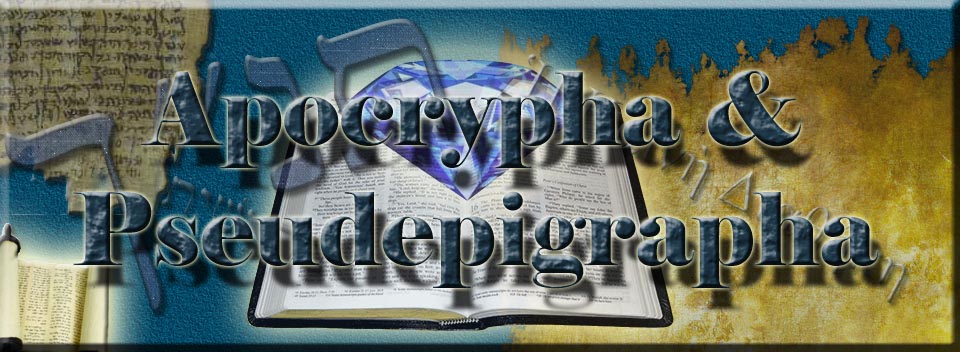
New Testament
Apocrypha* & Pseudepigrapha**
Also Known As The Noncanonical Literature***
Letter of Pilate to TiberiusThe Letter of Pontius Pilate, Which He Wrote to the Roman Emperor, Concerning Our Lord Jesus Christ. Pontius Pilate to Tiberius Cæsar the emperor, greeting. Upon Jesus Christ, whose case I had clearly set forth to you in my last, at length by the will of the people a bitter punishment has been inflicted, myself being in a sort unwilling and rather afraid. A man, by Hercules, so pious and strict, no age has ever had nor will have. But wonderful were the efforts of the people themselves, and the unanimity of all the scribes and chief men and elders, to crucify this ambassador of truth, notwithstanding that their own prophets, and after our manner the sibyls, warned them against it: and supernatural signs appeared while he was hanging, and, in the opinion of philosophers, threatened destruction to the whole world. His disciples are flourishing, in their work and the regulation of their lives not belying their master; yea, in his name most beneficent. Had I not been afraid of the rising of a sedition among the people, who were just on the point of breaking out, perhaps this man would still have been alive to us; although, urged more by fidelity to your dignity than induced by my own wishes, I did not according to my strength resist that innocent blood free from the whole charge brought against it, but unjustly, through the malignity of men, should be sold and suffer, yet, as the Scriptures signify, to their own destruction. Farewell. 28th March. |
|
* Apocrypha - (from the Greek word απόκρυφα meaning "those having been hidden away") are texts of uncertain authenticity or writings where the authorship is questioned. These texts may have been used in some churches by were never considered as part of the Bible ** Pseudepigrapha = (from Greek pseudes = "false", "epigraphe" = "inscription") are texts falsely attributed to biblical characters or times. These books were never part of the Bible & were never considered as scripture by the church at any time despite being published under such titles of "The Lost Books of the Bible" or "The Hidden Gospels". The church has always known about them & they were never "Hidden" & could be read at any University or college. There is no deep dark secret here, just publishers trying to make a buck with interesting book titles. *** Noncanonical Literature = Never part of the Canon or Bible. |
-
Site Navigation
 Home
Home What's New
What's New Bible
Bible Photos
Photos Hiking
Hiking E-Books
E-Books Genealogy
Genealogy Profile
Free Plug-ins You May Need
Profile
Free Plug-ins You May Need
 Get Java
Get Java.png) Get Flash
Get Flash Get 7-Zip
Get 7-Zip Get Acrobat Reader
Get Acrobat Reader Get TheWORD
Get TheWORD